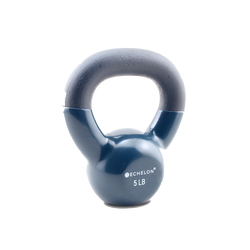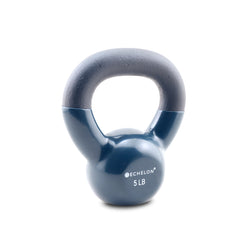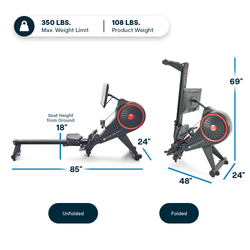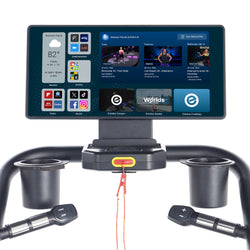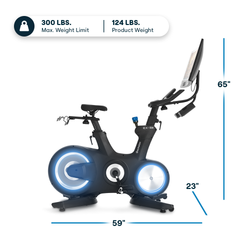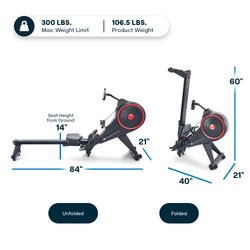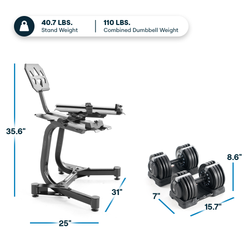The Science of Fitness: Understanding How Your Body Changes with Exercise

Exercise is more than just a means to stay in shape—it's a transformative journey that reshapes your body and enhances your overall health. From improved cardiovascular health to muscle growth, the physiological changes that occur with regular exercise are profound and life-changing. Let's dive into the science of fitness and explore how your body adapts to consistent physical activity.
Improved Cardiovascular Health
Regular exercise is a powerhouse for your heart and circulatory system. Engaging in activities like cycling, running, and rowing increases your heart rate, which strengthens the heart muscle over time. This process, known as cardiovascular conditioning, leads to:
- Lower Resting Heart Rate: A stronger heart pumps more blood with each beat, reducing the need for a high resting heart rate.
- Enhanced Blood Circulation: Improved blood flow delivers oxygen and nutrients more efficiently to your muscles and organs.
- Reduced Risk of Heart Disease: Regular exercise lowers blood pressure, improves cholesterol levels, and reduces the risk of heart disease and stroke.
Muscle Growth and Strength
When you challenge your muscles through resistance training—be it with weights, bodyweight exercises, or resistance bands—you create tiny tears in the muscle fibers. Your body repairs these fibers by fusing them, increasing the mass and strength of the muscles. Key benefits include:
- Increased Muscle Mass: This not only enhances physical appearance but also boosts metabolism, helping you burn more calories even at rest.
- Improved Functional Strength: Stronger muscles make daily tasks easier and reduce the risk of injury.
- Enhanced Bone Density: Weight-bearing exercises stimulate bone growth, reducing the risk of osteoporosis.
Metabolic Boost and Weight Management
Regular physical activity ramps up your metabolism, aiding in weight management and fat loss. Here's how:
- Increased Caloric Burn: Exercise increases the number of calories you burn, both during the activity and after, through a process known as excess post-exercise oxygen consumption (EPOC).
- Improved Insulin Sensitivity: Regular activity helps your muscles absorb glucose more effectively, lowering blood sugar levels and reducing the risk of type 2 diabetes.
- Fat Loss: Combining aerobic exercises with strength training promotes fat loss while preserving muscle mass.
Mental Health Benefits
Exercise is not just a boon for your body; it's equally beneficial for your mind. Physical activity stimulates the release of endorphins, the body's natural mood lifters. Benefits include:
- Reduced Stress and Anxiety: Regular exercise lowers levels of the body's stress hormones, such as adrenaline and cortisol.
- Enhanced Mood: Endorphins promote feelings of happiness and well-being.
- Improved Cognitive Function: Exercise increases blood flow to the brain, enhancing memory, focus, and overall cognitive function.
Tracking Progress with Echelon's Performance Analytics Tools
To fully reap the benefits of your fitness journey, it's crucial to track your progress. Echelon's state-of-the-art metrics tracking and performance analytics tools provide real-time insights into your workouts, allowing you to:
- Monitor Heart Rate: Track your heart rate during workouts to ensure you're training within your optimal heart rate zone for maximum efficiency.
- Analyze Performance: Review detailed analytics to understand your strengths and areas for improvement.
- Set and Achieve Goals: Establish fitness goals and monitor your progress, staying motivated as you see tangible improvements.
- Stay Accountable: Keep a record of your workouts to stay consistent and committed to your fitness journey.
Tips for Tracking Progress
- Set Clear Goals: Define what you want to achieve, whether it's weight loss, muscle gain, or improved endurance.
- Use a Fitness Tracker: Wearable devices can provide continuous monitoring of your activity levels, heart rate, and more.
- Keep a Workout Journal: Note down your workouts, including the type of exercise, duration, and intensity.
- Take Progress Photos: Visual records can be incredibly motivating as they show changes that numbers might not fully capture.
- Celebrate Milestones: Acknowledge and reward yourself for reaching your fitness milestones to stay motivated.
Conclusion
Understanding the science behind how exercise transforms your body can be a powerful motivator on your fitness journey. By leveraging Echelon's advanced tracking tools, you can make informed decisions, stay accountable, and celebrate your progress every step of the way. Remember, fitness is a journey, not a destination—embrace the process and enjoy the remarkable changes it brings to your body and mind.
Stay motivated, track your progress, and let Echelon guide you to a healthier, fitter you!

























